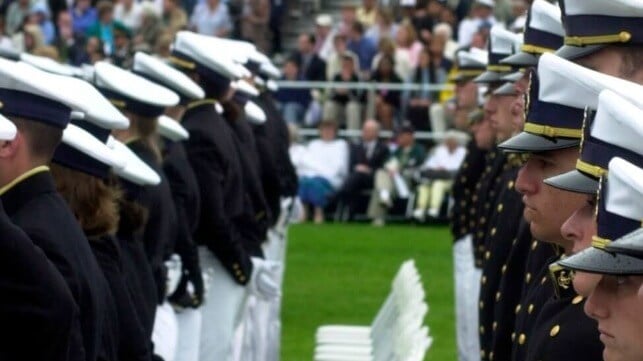Past Coast Guard Leaders Deliberately Hid Sexual Assault Investigation

Internal materials from 2018 appear to show that past U.S. Coast Guard leaders deliberately hid an investigation into patterns of sexual assault at the Coast Guard Academy (CGA). That investigation, Operation Fouled Anchor, concluded that CGA mishandled sexual assault reports from the late 1980s through 2006, resulting in dozens of cases in which perpetrators were never referred for criminal prosecution.
Over the span of six years, 70 Coast Guard Investigative Service agents spent 20,000 hours looking into these allegations. According to their after-action summary, they unearthed allegations against 43 different suspects, including some who were still on active duty. The top-line finding of the report was that CGA had a "disturbing pattern of conducting internal administrative investigations and/or initiating disenrollment for sexual misconduct instead of referring the matter for criminal investigation."
The investigation's findings were known at the highest levels of Coast Guard leadership, but not to the general public. In 2018, years before Operation Fouled Anchor formally closed, top-level administrators at Coast Guard headquarters decided that it would be best if Congress did not know about the investigation.
Based on meeting documents dating to October 2018, U.S. Coast Guard leaders of the era were concerned about the optics of a sexual assault investigation with a memorable "moniker" like Operation Fouled Anchor. They were afraid that disclosing the investigation would lead to "comprehensive Congressional investigations, hearings, and media interest" and could prompt uncomfortable questions about why "the rates of sexual assault reporting have not appreciably changed" at CGA in recent years. (Reports of sexual assault incidents at CGA roughly doubled from 2009 to 2017.)
In a handwritten list of "pros and cons" on the 2018 briefing memo, an unnamed official - identified as Adm. Charles Ray (ret'd), the Coast Guard's second-in-command at the time - wrote out the reasons why the Coast Guard might or might not want to disclose the investigation to Congress. "Pros" included "rip the bandaid off" and "cultural guilt purged." "Cons" included "investigations without end" and "no victims coming forward now." In larger text, he wrote that the "problem is one of the past."
The briefing memo also shows concern that any external investigation would create "intense scrutiny of all past to present [Coast Guard Academy] leadership." In addition, the authors were concerned that Congress could look beyond CGA and launch a "review of ALL Coast Guard cases" [caps original].

that matters most
Get the latest maritime news delivered to your inbox daily.
To avoid this possibility, the authors recommended that the Coast Guard should not tell Congress or the media that the investigation ever occurred. After deliberate consideration, the agency's leaders selected this option.
Operation Fouled Anchor remained hidden from view until a CNN investigation unearthed it in 2023, prompting outrage from congressional leaders.
